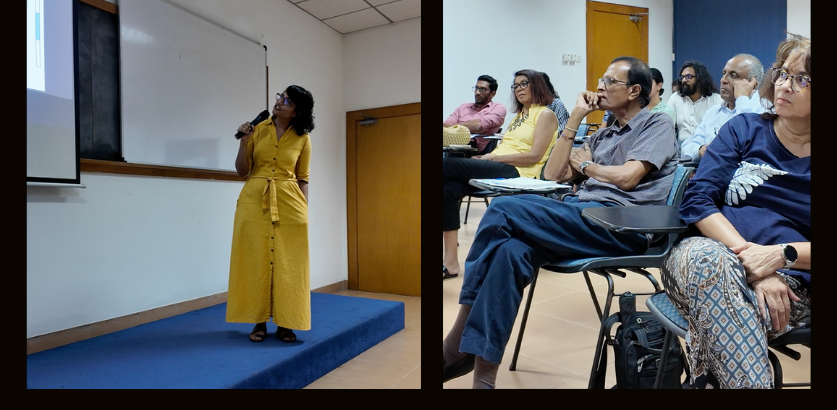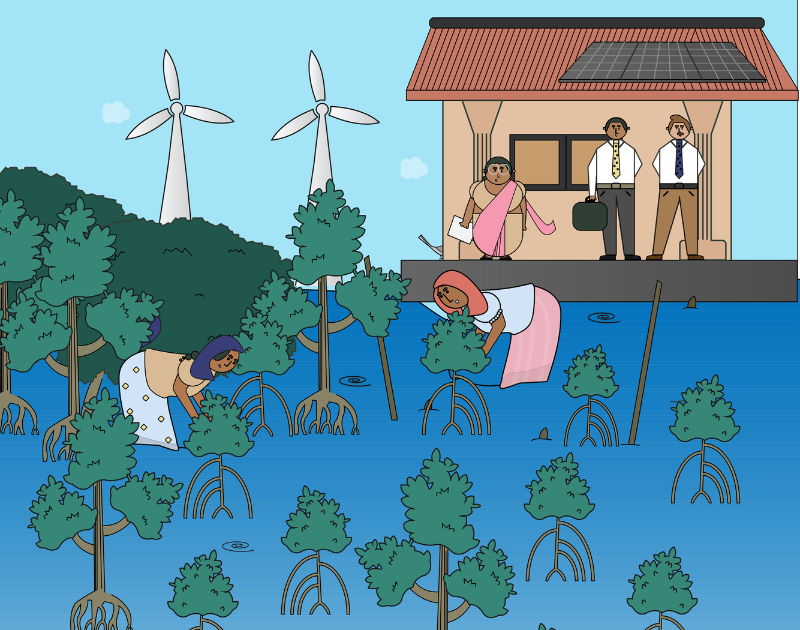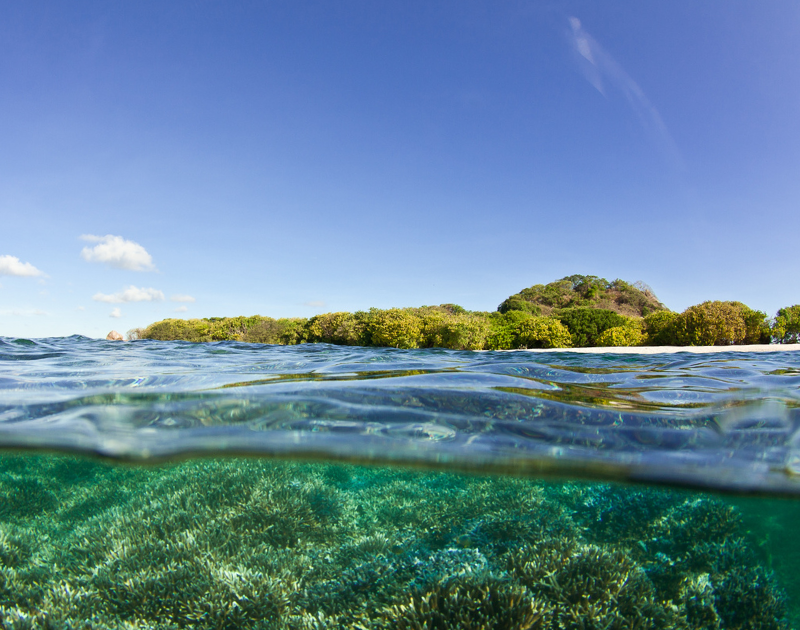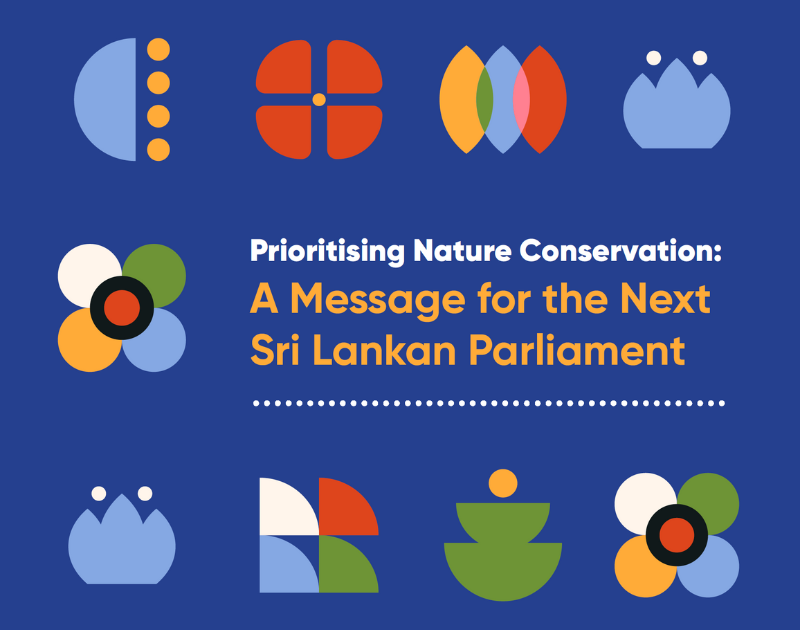
- Home
- Knowledge Insights
- ‘Debt and Dugongs’ – CSF Presentation on Debt-for-Nature Swaps and Blue Bonds
Is Sri Lanka ready for debt instruments linked to nature? This was the focus of a knowledge sharing and engagement session that CSF held last month, at the ‘Festival of Ideas’ organised by the Bandaranaike Centre for International Studies (BCIS). The session titled, ‘Debt and Dugongs’, was led by CSF Research Associate Ashani Basnayake, and joined by CSF Director Anushka Wijesinha. Participants were drawn from civil society, private sector, development partners, and government.
The session coincided with the climate COP29 that was taking place in Baku, where country negotiators strived to reach a global agreement on climate finance. CSF felt that, alongside this global effort as well as our own national circumstances around debt restructuring, it was timely to take a closer look at the realities of financing nature and biodiversity. CSF conducted an engaging session at help participants better understand debt and nature financing, with a particular focus on debt-for-nature swaps (DFNS) and blue bonds.
The presentation provided participants with insights into both the financial and non-financial benefits of DFNS, drawing on experiences from Ecuador (Galápagos) and Belize. It also addressed the technical aspects of bond issuance, along with critical measures to ensure inclusivity and accountability in such financing mechanisms. The presentation covered five key sections: 1) Key global factors influencing nature finance; 2) Debt-for-nature swaps and green/blue bonds; 3) Transparency and accountability; 4) Factors to consider in implementing a DFNS in Sri Lanka; and 5) Inclusivity and benefit sharing.
Two mini-polls were also conducted to gauge audience perceptions regarding Sri Lanka’s readiness for a DFNS or nature-based bond. In the initial poll at the outset of the session, participants were asked “Do you think Sri Lanka is ready for a Debt-for-Nature Swap or a Green/Blue Bond?”. Approximately 60% of the audience said no, about 40% expressed support, with one participant unsure. A follow-up poll towards the end of the session asked participants : “When do you think is the right time for Sri Lanka to undertake a DFNS?”. Out of three options, the majority (75%) chose – “Start preparing now—by getting our policies, institutions, and regulations in place—and decide later whether to proceed with a DFNS.” The remaining responses revealed polarized opinions. One group believed Sri Lanka should start preparing with the aim of successfully completing a DFNS. Another argued that Sri Lanka should rely only on international grants, and advocate for debt cancellation by developed nations. A final group felt that Sri Lanka should not pursue a DFNS, and instead explore alternative methods to finance conservation.
In summary, there was broad consensus that Sri Lanka must access external financing beyond national budget funds to bridge the significant gap needed for conservation and climate resilience efforts. This highlights the urgency of exploring innovative financing mechanisms while ensuring readiness, inclusivity, and accountability in implementation. CSF will continue its multi-stakeholder dialogue series to improve literacy and understanding around these instruments.
Download the full presentation here.

(Left: Ashani Basnayake, CSF Research Associate delivering the presentation; Right: A section of the audience at the event at BCIS)


